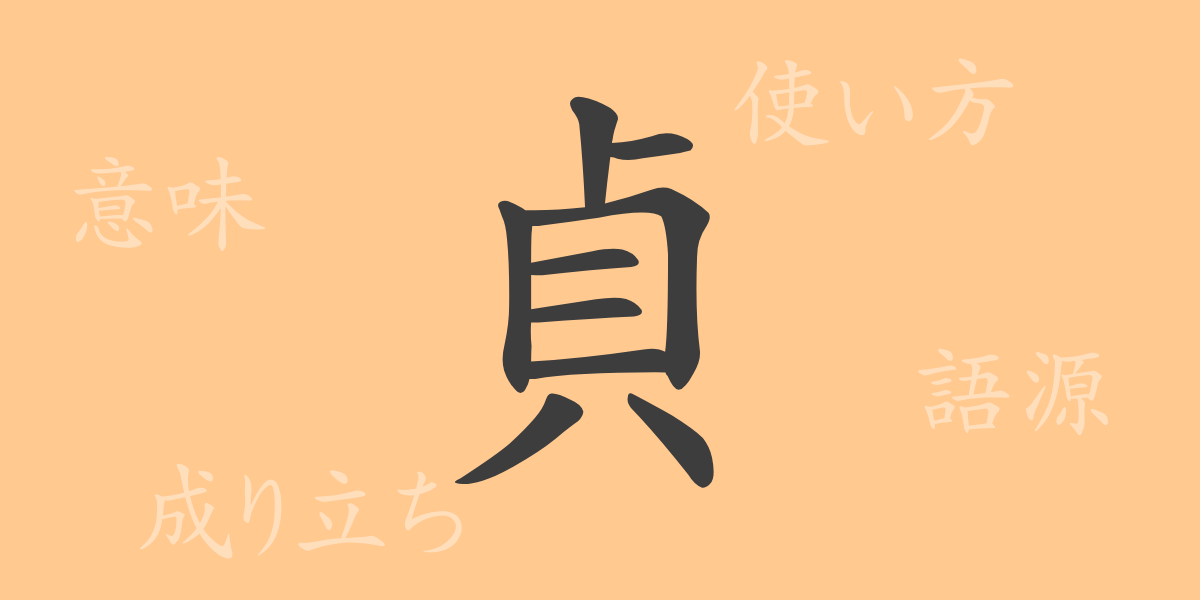The beauty of Japanese language lies in its complex and rich character system. One such kanji is ‘貞(てい)’, which holds significant meaning and plays a crucial role in Japanese language and culture. In this article, we will delve into the origins, meanings, and uses of ‘貞’, as well as explore phrases and idioms that utilize this character. Let’s step into the world of ‘貞’, a common kanji in Japanese, and explore its depth.
Origins of ‘貞(てい)’
The kanji ‘貞’ originates from ancient China. Its roots can be traced back to oracle bone scripts, derived from the kanji ‘正’, which means ‘correct’ or ‘right’. Over time, its form evolved into the current ‘貞’, which conveys steadfastness and unchanging nature, symbolizing the essence and correctness of things since ancient times.
Meaning and Usage of ‘貞(てい)’
The kanji ‘貞’ embodies meanings such as ‘correct’, ‘unchanging’, and ‘having integrity’. It is often used to express moral correctness or immutability. In addition, it appears in contexts related to personal conduct and ethics, often in terms such as ‘貞淑(ていしゅく)’, which describes the chastity or modesty of a woman.
Readings, Stroke Count, and Radical of ‘貞(てい)’
‘貞’ is a versatile character in Japanese, known by several readings and structural details:
- Readings: The On’yomi (Sino-Japanese reading) is ‘テイ’, and the Kun’yomi (native Japanese reading) is ‘さだ’.
- Stroke Count: The kanji ‘貞’ consists of 9 strokes.
- Radical: The radical of this kanji is ‘貝’, commonly found in characters related to value or wealth.
Phrases and Idioms Using ‘貞(てい)’
‘貞’ appears in various idioms and phrases that enrich its narrative:
- 貞淑(ていしゅく): Describing a woman’s purity and integrity.
- 貞節(ていせつ): Ethical righteousness and integrity.
- 固い貞(かたいさだ): Firm beliefs or resolutions that are unshakeable.
- 貞操(ていそう): Sexual chastity, often in reference to women.
These expressions commonly illustrate an individual’s moral and ethical values.
Conclusion on ‘貞(てい)’
The kanji ‘貞’ transcends its forms through the ages, symbolizing correctness and constancy. It plays a vital role in Japanese culture, used in many phrases and expressions. This exploration into ‘貞’ hopes to deepen understanding of its profound meanings and backgrounds, offering insight into the richness of the Japanese language.

























